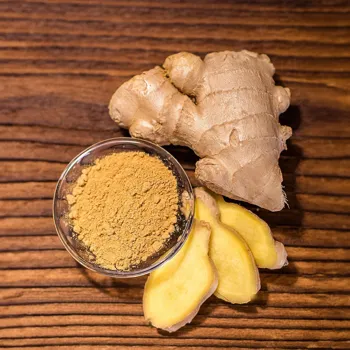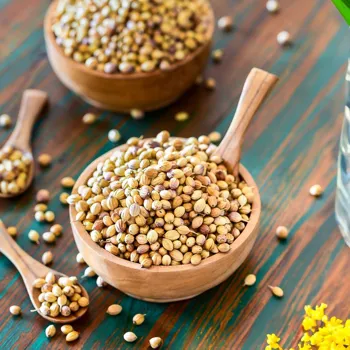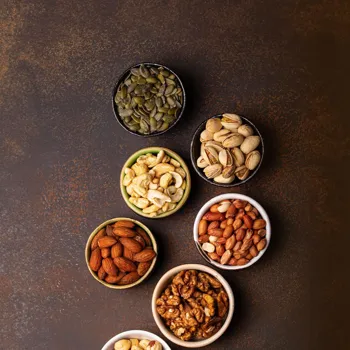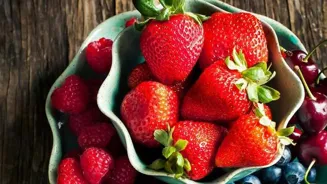Unveiling the Power of Indian Superfoods: A Desi Guide to Boosting Health Naturally. Explore the magic in your kitchen!
In the bustling bazaars and vibrant kitchens across India, we're constantly surrounded
by a treasure trove of ingredients. But amidst the usual dal-roti, some foods stand out – packed with nutrients and boasting incredible health benefits.
These are our very own superfoods, and understanding them can be a game-changer for your well-being. Forget expensive imports; many of these powerhouses are already in your pantry or available at your local market!
This guide will demystify superfoods, explaining what makes them so special and how you can easily incorporate them into your daily Indian diet. Get ready to unlock the secrets to a healthier, more energetic you, the desi way!
Superfoods are nutrient-dense, not a fad; integral to balanced diet
What exactly makes a food a "superfood"? It's not just a marketing gimmick. Superfoods are natural, unprocessed foods that are exceptionally dense in vitamins, minerals, antioxidants, and other beneficial compounds. They offer a concentrated dose of goodness compared to regular foods.
Think of it as getting the most bang for your buck in terms of nutrition! These foods are known for their potential to improve heart health, boost immunity, combat inflammation, and even prevent chronic diseases. However, it’s also important to remember that no single food can be a magic bullet.
A balanced diet is key, and superfoods are best used as part of a holistic approach to healthy eating. Let's explore some readily available options and how to integrate them simply.
Exploring Indian superfoods: turmeric, amla, ginger, garlic, cinnamon
Let's dive into some amazing superfoods easily found in India. Turmeric, or haldi, is a kitchen staple with powerful anti-inflammatory properties thanks to its active compound, curcumin. Add a pinch to your dal, milk (haldi doodh!), or vegetable curries.

Amla, the Indian gooseberry, is a vitamin C powerhouse, great for immunity. You can eat it raw (though it's tart!), pickled, or in the form of juice or chutney. Spices like ginger, garlic, and cinnamon are also superfood contenders.
They add flavor to your dishes and provide antioxidant and anti-inflammatory benefits. Incorporating these into your cooking is easy and delicious ! Think ginger-garlic paste in your vegetable preparations or a cinnamon stick in your chai.
Quinoa and millets offer complete protein and health benefits
Moving beyond the spices and into grains and lentils, quinoa is a great option. It's a complete protein, meaning it contains all nine essential amino acids, making it an excellent choice for vegetarians. It also controls blood sugar. Another incredible food is millets.

Now, don't think of them as your grandmom's old foods. They are amazing sources of fiber, protein, and micronutrients. They're also gluten-free! Ragi (finger millet), jowar (sorghum), and bajra (pearl millet) are some popular varieties. You can make roti, dosa, porridge, or even upma with them.
They're incredibly versatile and good for you. Also, lentils are another great source of protein, iron and fiber.
Seeds and nuts are small but mighty sources of nutrients
Now, let’s talk about seeds and nuts. Flaxseeds and chia seeds are great source of omega-3 fatty acids, fiber, and antioxidants. Sprinkle them on your salads, add them to your smoothies, or mix them into your roti dough. They're small but mighty!

Nuts like almonds and walnuts are also packed with healthy fats, protein, and vitamin E. A handful a day can do wonders for your heart health and brain function. Just remember to eat them in moderation, as they're calorie-dense.
Think of adding chopped almonds to your cereal or having a few walnuts as an evening snack. Keep it simple and tasty.
Include green leafy veggies and fruits for a nutrient-packed diet
Finally, let's focus on green leafy vegetables and fruits. Spinach, methi (fenugreek leaves), and mustard greens are packed with vitamins, minerals, and fiber. They're incredibly versatile and can be used in curries, stir-fries, or even as a side dish.
Fruits like bananas, papayas, and guavas are also nutritional powerhouses. Bananas are a great source of potassium, while papayas are rich in vitamin A and digestive enzymes. Guavas are an excellent source of vitamin C and fiber.
Make sure to incorporate a variety of fruits and vegetables into your diet to get a wide range of nutrients. These are readily available and super affordable, so there’s no excuse to skip them.
Incorporate superfoods into daily meals for a healthier lifestyle
Incorporating superfoods into your daily routine doesn’t have to be complicated or expensive. Start small and build gradually. Add a pinch of turmeric to your daal, sprinkle chia seeds on your yogurt, or swap your refined flour roti for a millet roti. The key is to make it sustainable and enjoyable.
Experiment with different recipes and find ways to incorporate these superfoods into your favorite Indian dishes. You'll be surprised at how easy it is to boost your nutrient intake and improve your overall health. Remember, consistency is key.
The benefits will be amazing, just by embracing the power of these wonderful, local 'super' foods.
Incorporate superfoods into a balanced diet for optimal health
Superfoods are a fantastic addition to a healthy diet. But, remember, they're not a replacement for a balanced, nutritious meal plan. Focus on eating a variety of whole foods, including plenty of fruits, vegetables, whole grains, and lean protein.
Stay properly hydrated by drinking plenty of water throughout the day. Regular exercise and adequate sleep are equally important for your overall well-being.
Consult with a doctor or registered dietitian for personalized advice on how to incorporate superfoods into your diet to meet your specific needs. Don’t fall for all the fancy fad diets. Stick with what promotes your overall health !
AI Generated Content. Glance/InMobi shall have no liability for the content












